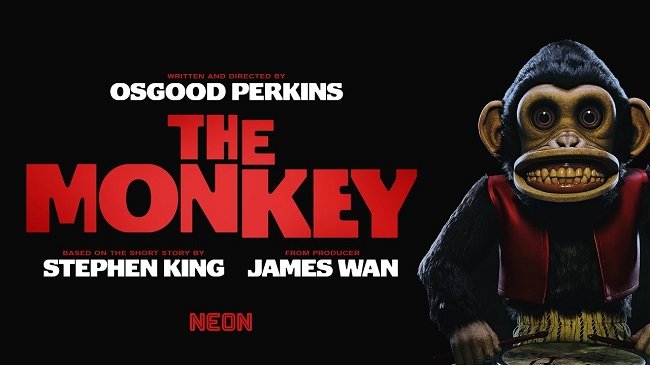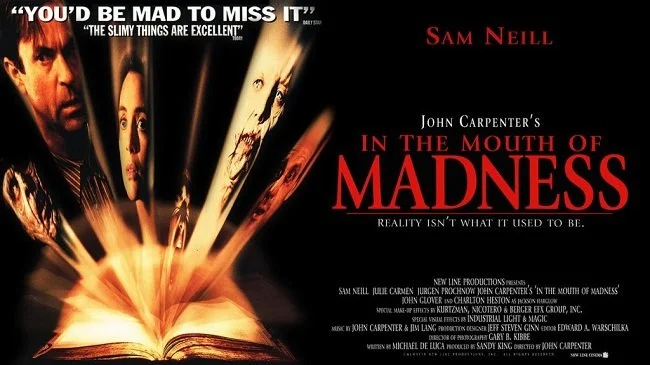Holocaust 2000 (1977)
The commercial and critical success of The Exorcist upon its release in late 1973 led to an increase in major studios investing in big budget, star driven horror films. The Omen (1976) further established this horror renaissance, which moved away from the traditional gothic horror of Hammer Studios and Roger Corman’s AIP releases. Horror was now about evil and biblical predictions manifesting in the modern world. As ever, with any successful film or genre, there are those subsequent productions that seek to imitate and cash-in. Holocaust 2000 is such a film. A British-Italian co-production, it features Kirk Douglas (who does much of the film’s heavy lifting), several well known British character actors and some notably violent set pieces. It takes the fashionable theological threat of the Antichrist and also adds an interesting nuclear angle, where a fusion plant built to solve the energy crisis could prove to be a harbinger of doom.
Industrialist Robert Caine (Kirk Douglas) is looking to build the world’s first nuclear fusion reactor in the Middle East to resolve the energy crisis. While visiting the proposed site with local politicians, journalist Sara Golan (Agostina Belli) shows him a hidden cave where early christians met. It is portentously destroyed during the groundbreaking ceremony. On returning to London Caine finds that his project is strongly opposed. His home is surrounded by protesters and his wife Eva (Virginia McKenna) states she will use her shares in Caine Industries to halt the plan. Eva is subsequently killed by a radical protester whose intended target was Caine himself. Despite this and other setbacks, Caine’s son Angel (Simon Ward) supports the project wholeheartedly and urges him to forge ahead. A chance encounter with a Monsignor (Romolo Valli) on a flight, gives Caine pause for thought. Is the project safe? Does Angel have an ulterior motive? Are there more sinister forces at work?
Director and writer Alberto De Martino was a seasoned Italian filmmaker, having worked as a second unit director for Sergio Leone. Like many genre directors of his time, he had an eye for visual composition and lighting. As ever with Italian genre cinema, the visuals often trump a film’s narrative. There are elements of this in Holocaust 2000. When it is revealed that Robert Caines son, Angel, is the Antichrist there is no explanation as to how this has happened. Also, will Caine’s second son equally be of note. Sadly the screenplay chooses not to explore these points. Instead it invests time and effort in building towards several set pieces. There is a notable dream sequence in which the seven fusion reactors built on towers, rise from the sea and transform into a seven headed hydra. There are some striking death scenes including a nasty accident involving helicopter rotors.
Although Holocaust 2000 treads very familiar territory it has sufficient innovation to keep viewers engaged and benefits greatly from the visual flair inherent in Italian filmmaking. The use of iconic British locations such as Bigbury-on-sea in Devon and Carlton House Terrace in London add to the atmosphere. The cast of solid British actors adds weight to the proceedings. The idea of the Devil using a fusion reactor to destroy the world is clever and the background stories of the energy crisis and the political turmoil in the Middle East are timely. The film is further bolstered by an Ennio Morricone soundtrack. However, several cultural tropes have aged poorly, such as the ageing man with a much younger lover. Kirk Douglas was 61 at the time where co-star Agostina Belli was 30. There’s a plot line where Caine pressurises Sara to have an abortion that feels archaic.
Holocaust 2000, like so many international films, was released in the US and other territories under several different names. It was called Rain of Fire in some prints and The Chosen when it was released in North America by American International Pictures. This version is shorter and has an alternative ending. Where Holocaust 2000 ends ambiguously with Caine fleeing back to Sara’s home in the Middle East, to raise their new child, The Chosen has a more definitive conclusion. Caine flies to Geneva where Angel is holding a board meeting and kills himself and everyone else with a concealed bomb. Sadly the editing and the hastily created miniature effects are poor, undermining the film’s climax. The original ending is the better of the two, reflecting the anxieties of the seventies after several nuclear accidents and the ongoing hostilities between the Arab world and Israel. Italian exploitation cinema doesn’t always try this hard, which makes Holocaust 2000 an interesting entry in the demonology genre.




























